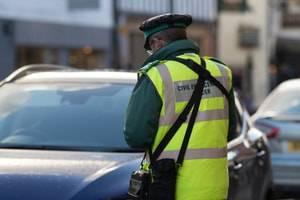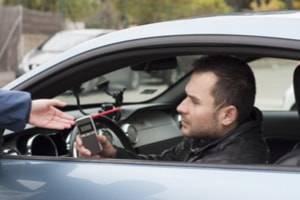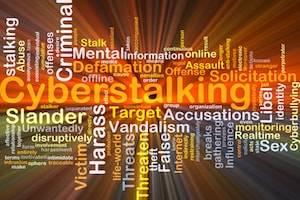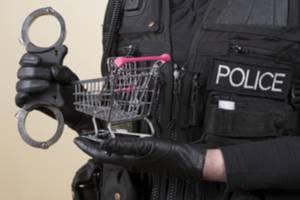
 With busy lifestyles, minor details become lost in the shuffle. We forget where we put our car keys, we forget to respond to that last text message for a few days, and we miss appointments. But what happens if one of those appointments we accidentally forgot to show up for was traffic court? Find out how Illinois courts respond.
With busy lifestyles, minor details become lost in the shuffle. We forget where we put our car keys, we forget to respond to that last text message for a few days, and we miss appointments. But what happens if one of those appointments we accidentally forgot to show up for was traffic court? Find out how Illinois courts respond.
Can I Still Drive?
On the back of an initial citation, there are instructions on how to respond. You do not need to go to court for minor petty traffic offenses. There is an option to pay for the ticket. However, this is not always the wisest solution. By paying, you plead guilty to the charges, and you risk the possibility of points being added to your license. If you do opt to go to court, you do so instead of paying the fine. If you miss your court date, however, the county circuit courts will forward the information that you failed to appear to the Secretary of State, who, in turn, will automatically suspended your license.
 They say, “seeing is believing,” when obtaining the truth in many situations. The same idea holds true in a criminal investigation and trial. For decades, attorneys have used chalkboard markings, flip charts, x-rays, maps, diagrams, 3D models and photographs to help the jurors determine the truth behind the story. Advancements in technology in more recent years have catapulted us away from the use of chalkboards and stick figures to digital videography of an incident as it occurs. Today, a surveillance tape video can show multiple angles and enhance audio sound recordings. However, video surveillance is still not a “foolproof” method to prove any case.
They say, “seeing is believing,” when obtaining the truth in many situations. The same idea holds true in a criminal investigation and trial. For decades, attorneys have used chalkboard markings, flip charts, x-rays, maps, diagrams, 3D models and photographs to help the jurors determine the truth behind the story. Advancements in technology in more recent years have catapulted us away from the use of chalkboards and stick figures to digital videography of an incident as it occurs. Today, a surveillance tape video can show multiple angles and enhance audio sound recordings. However, video surveillance is still not a “foolproof” method to prove any case.
Someone is Always Watching
Video surveillance systems sales have skyrocketed recently. Marketing executives everywhere continuously push the debatable argument that these cameras reduce crime and protect the purchasers. The goal of most buyers is to provide evidence should an alleged criminal event arise. However, many of these recordings are not admissible as evidence. Most business owners and homeowners do not spend the necessary money to have a quality surveillance system.
 Many drivers mistakenly believe that if they drive carefully after having a couple of alcoholic beverages, then the police will have no reason to suspect drunk driving. This erroneous concept likely stems from the mental image of inebriated drivers drifting between lanes, failing to maintain a constant speed, and failing to come to a complete stop at stop signs. While this scenario exists, the error in judgment is the belief that if someone can sufficiently operate a motor vehicle and obey traffic laws, police will have no reason to suspect alcohol consumption.
Many drivers mistakenly believe that if they drive carefully after having a couple of alcoholic beverages, then the police will have no reason to suspect drunk driving. This erroneous concept likely stems from the mental image of inebriated drivers drifting between lanes, failing to maintain a constant speed, and failing to come to a complete stop at stop signs. While this scenario exists, the error in judgment is the belief that if someone can sufficiently operate a motor vehicle and obey traffic laws, police will have no reason to suspect alcohol consumption.
Officers understand that more drunk drivers are on the road between certain hours in the vicinity of bars, clubs, and other drinking establishments; therefore. they intentionally look for other reasons to pull over drivers.
Driving Too Carefully is Suspicious, Too
 Cell phones have become a staple in our daily lives. We scroll social media, check bank accounts, and send business emails—even when we are in our homes with our families and sitting on the couch. Moreover, cellular devices are extremely helpful in emergency situations, enabling those in danger to contact someone able to help.
Cell phones have become a staple in our daily lives. We scroll social media, check bank accounts, and send business emails—even when we are in our homes with our families and sitting on the couch. Moreover, cellular devices are extremely helpful in emergency situations, enabling those in danger to contact someone able to help.
For victims of domestic abuse, cell phones may be their only chance at getting to safety. Illinois enacted a new law this year which will have a direct impact on the cell phone bill of anyone involved in a domestic violence dispute.
The New Law
According to the new law that went into effect as of January 1, 2018, anyone approved with an order of protection from a judge can separate their cell phone account from their accused abusers. During the petition for the court order, an alleged victim can request the service. Once approved, the court clerk will then contact the service provider directly, requesting the transfer of that phone number into the victim’s name, free of charge. The request may include any of the children’s phone lines, as well. The provider then has 72 hours to respond to the request. This law is a massive victory for those victims in real danger. Previously, these individuals needed to go to the cell phone company directly and explain their story to yet another stranger, only to discover that transferring the numbers would be costly.
 Within the last decade, Illinois gun laws have relaxed as handguns are no longer banned and the gun registry program has fallen by the wayside. However, in the wake of the recent Florida school shooting, Illinois residents urge state and federal lawmakers to make a change to the current weapons legislation.
Within the last decade, Illinois gun laws have relaxed as handguns are no longer banned and the gun registry program has fallen by the wayside. However, in the wake of the recent Florida school shooting, Illinois residents urge state and federal lawmakers to make a change to the current weapons legislation.
The Second Amendment
United States citizens have the right to keep and bear arms according to the U.S. Constitution. Explicitly, the Second Amendment says, “A well regulated Militia, being necessary to the security of a free State, the right of the people to keep and bear Arms, shall not be infringed.” It is because of these unalienable constitutional rights that the handgun ban is no longer in practice.
The Supreme Court ruled that "The Second Amendment protects an individual right to possess a firearm unconnected with service in a militia, and to use that arm for traditionally lawful purposes, such as self-defense within the home." McDonald v. City of Chicago (2010).
 Assault and battery are commonly misconstrued and incorrectly linked together as the same. A battery charge is a physical act of harming another individual. Assault is a verbal or other communication that leads a reasonable person to believe that battery may occur. Both of these charges have been in existence for years, however. With the emergence of the Internet and the advancements of social media, threatening behavior has a new outlet. This year, new laws make cyberstalking more than just annoying, it may be deemed and punished as a hate crime under the right circumstances.
Assault and battery are commonly misconstrued and incorrectly linked together as the same. A battery charge is a physical act of harming another individual. Assault is a verbal or other communication that leads a reasonable person to believe that battery may occur. Both of these charges have been in existence for years, however. With the emergence of the Internet and the advancements of social media, threatening behavior has a new outlet. This year, new laws make cyberstalking more than just annoying, it may be deemed and punished as a hate crime under the right circumstances.
Cyberstalking as a Hate Crime
The definition of cyberstalking is threatening behavior or unwanted advancements directed at someone else by using the Internet or other forms of online communications. It is deliberate, persistent, and personal.
 Shoplifting is an epidemic throughout our country. Some individuals convicted of the crime explain they only did it to feed their families, indicating a community failure to aid those in need of assistance. Others do it for the sheer thrill of the experience. No matter the reason, statistics show shoplifting is only caught once in 48 incidents. Despite these dismal numbers, management watches security cameras only 1 percent of the time, enabling a new rise in shoplifting by customers and employees alike.
Shoplifting is an epidemic throughout our country. Some individuals convicted of the crime explain they only did it to feed their families, indicating a community failure to aid those in need of assistance. Others do it for the sheer thrill of the experience. No matter the reason, statistics show shoplifting is only caught once in 48 incidents. Despite these dismal numbers, management watches security cameras only 1 percent of the time, enabling a new rise in shoplifting by customers and employees alike.
Sweetheart Shoplifting
“Sweethearting” is the term coined for incidents where an alleged thief pays for some but not all of his or her items. This maneuver is completed solely by the shopper, or while working in conjunction with the cashier. The two most common situations include the following:
 The loss of one's driving privileges can present a considerable obstacle in daily life. While you once had reliable transportation for work and appointments, you must now rely on friends or public transport. Moreover, the loss of your driver's license can additionally result in showing up late to work, and thus decrease your employability. Unfortunately, driver’s license suspension or revocation does not always occur only because of poor driving habits. If you find yourself in financial hardship, licensure loss may follow.
The loss of one's driving privileges can present a considerable obstacle in daily life. While you once had reliable transportation for work and appointments, you must now rely on friends or public transport. Moreover, the loss of your driver's license can additionally result in showing up late to work, and thus decrease your employability. Unfortunately, driver’s license suspension or revocation does not always occur only because of poor driving habits. If you find yourself in financial hardship, licensure loss may follow.
What Actions Result in Suspension?
Driving under the influence is one recognizable behavior likely to result in a suspension of driving privileges. However, a there is a surprising list of other actions that result in a loss of driving rights but are not road-related.
 The average lifespan lengthened tremendously over the last few decades with the assistance of medical advancements. However, with age also comes the general “wearing down” of the body, resulting in illness and disabilities. Only one in four adults over the age of 60 currently live on their own successfully, according to the U.S. Census Bureau.
The average lifespan lengthened tremendously over the last few decades with the assistance of medical advancements. However, with age also comes the general “wearing down” of the body, resulting in illness and disabilities. Only one in four adults over the age of 60 currently live on their own successfully, according to the U.S. Census Bureau.
These statistics leave our nation’s aging population in the care of someone else. Many families have no choice but to accept their aging parents into their homes, regardless of relationship or financial status. Unfortunately, parents are reluctant to relinquish their title as “head of the household” to their adult children. Children, in return, struggle to cope with the change in family dynamics, often resulting in rising tensions and occasionally a domestic violence charge.
 Common knowledge tells us that driving under the influence of alcohol endangers lives. However, drunk driving also has smaller potential repercussions. These consequences are not life-threatening, but they are life-altering and require heavy consideration before intentionally drinking and driving.
Common knowledge tells us that driving under the influence of alcohol endangers lives. However, drunk driving also has smaller potential repercussions. These consequences are not life-threatening, but they are life-altering and require heavy consideration before intentionally drinking and driving.
One question asked after a DUI arrest is if you will still have gainful employment if convicted. Can you lose your job because of a DUI?
Conviction is More Than a Fine and a Record
A DUI conviction frequently ends in more than a fine and a blemished driving record. Daily tasks such as going to work or grocery shopping become difficult to maneuver after licensure loss. Additionally, even an overnight stay in jail creates tension in social relationships. Insurance rates increase with a label of being a high driving risk. All of these repercussions exist without even discussing the impact on income.
 A lawyer’s time and advice are his stock and trade.
A lawyer’s time and advice are his stock and trade.